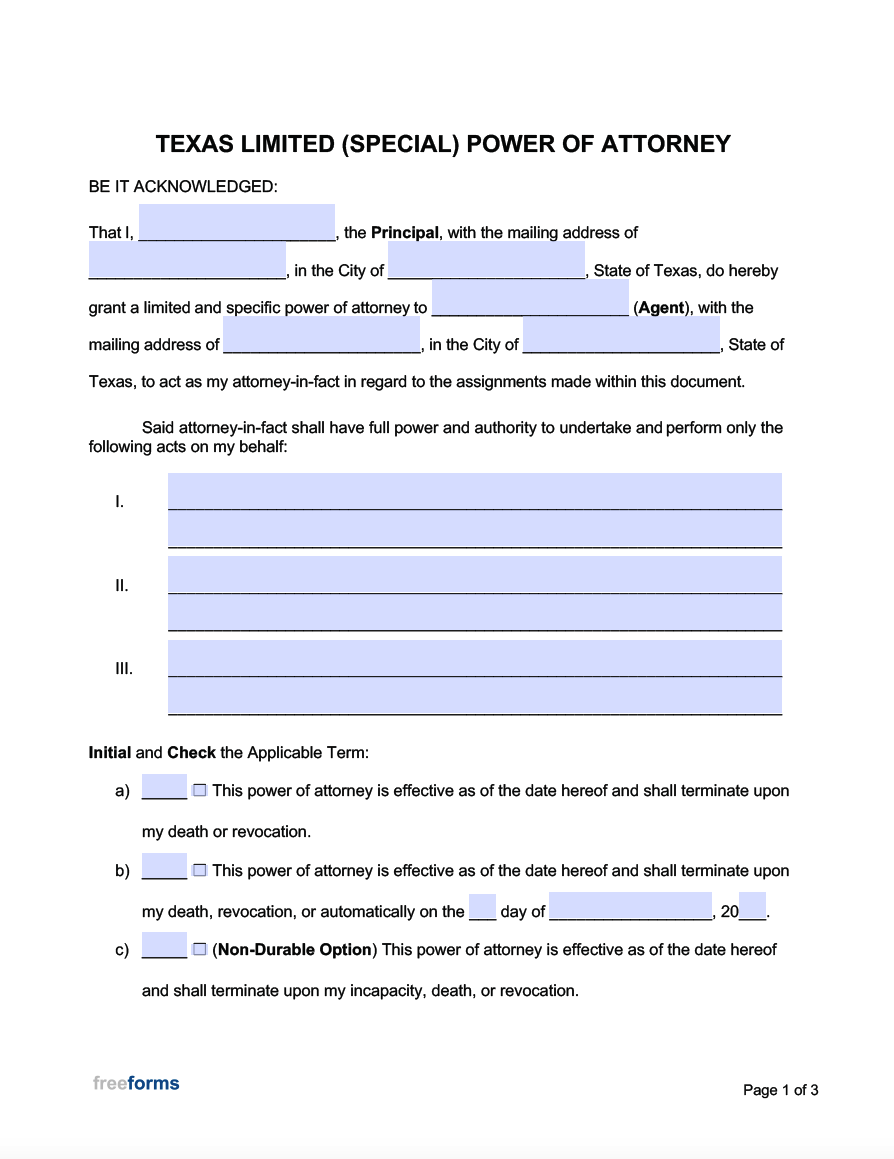What is a Power of Attorney?
A Power of Attorney (POA) is a legal document that grants someone else the authority to act on your behalf. This can be useful in various situations, such as when you’re unable to manage your own affairs due to illness, injury, or other reasons.
Types of Power of Attorney
There are several types of POAs, each with its own specific purpose:
General Power of Attorney: This grants broad authority to your agent to handle most of your personal and financial affairs.

Image Source: freeforms.com
Key Elements of a Power of Attorney Form
A POA form typically includes the following elements:
Principal: The person granting the authority.
How to Obtain a Power of Attorney Form
You can obtain a POA form in several ways:
Online: Many legal websites offer downloadable POA forms.
Tips for Creating a Power of Attorney
Consult with an Attorney: While you can find many free POA forms online, it’s always a good idea to consult with an attorney to ensure that your document is legally sound.
Conclusion
A Power of Attorney is a valuable tool that can help you protect your interests and ensure that your affairs are handled properly. By understanding the different types of POAs and following the tips outlined in this article, you can create a document that meets your specific needs.
Frequently Asked Questions
1. Can I revoke a Power of Attorney? Yes, you can revoke a POA at any time. However, the revocation may not be effective until your agent receives notice of it.
2. What if my agent dies or becomes incapacitated? If your agent dies or becomes incapacitated, you’ll need to appoint a new agent.
3. Can I use a POA to create a living will? No, a POA is not a substitute for a living will. A living will expresses your wishes regarding end-of-life care.
4. Can I use a POA to give someone control over my social media accounts? Yes, you can include provisions in your POA that grant your agent authority over your social media accounts.
5. Can I use a POA to sell my house? Yes, if your POA grants your agent authority to sell real estate, they can sell your house on your behalf.
P0Wer Of Attorney Forms